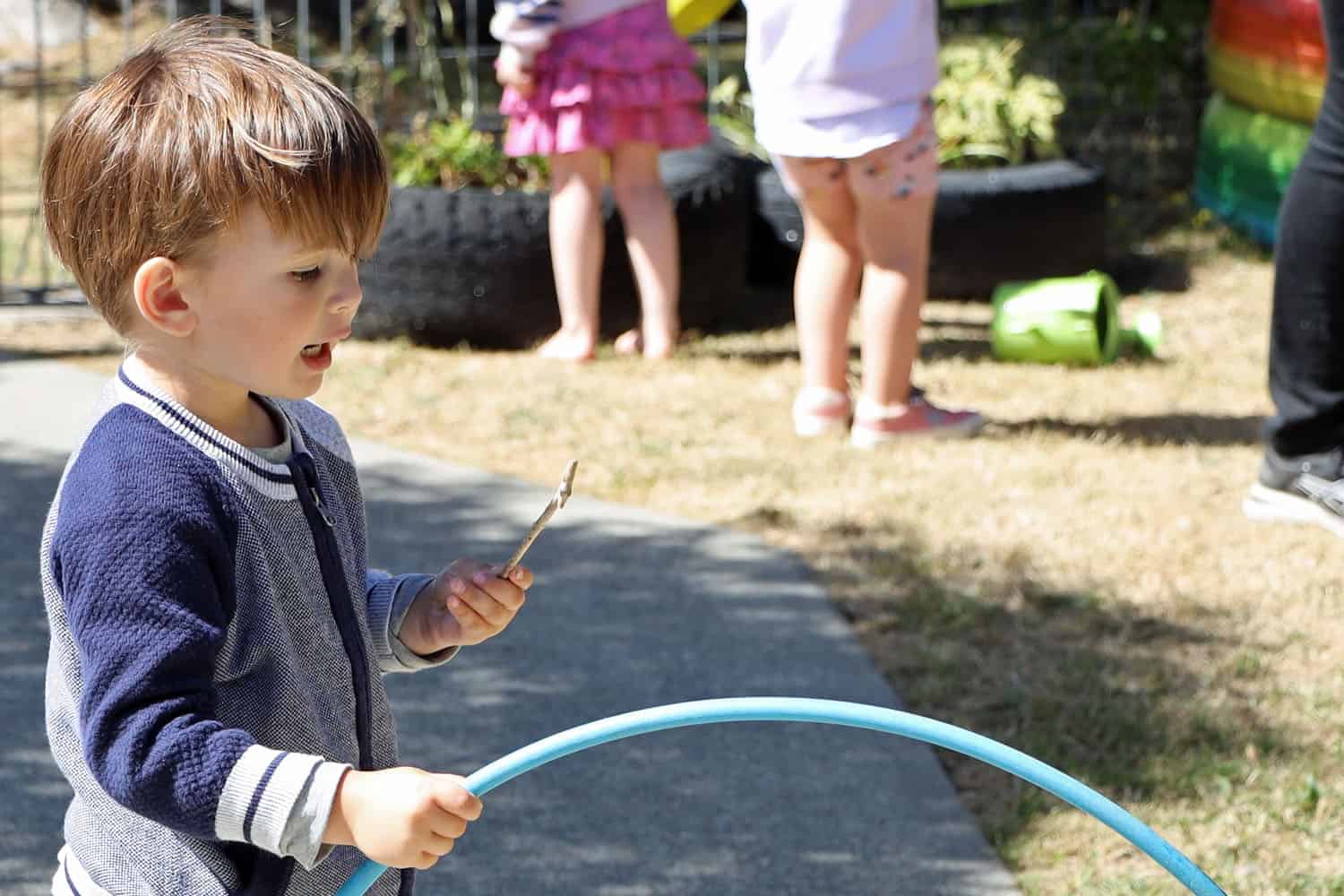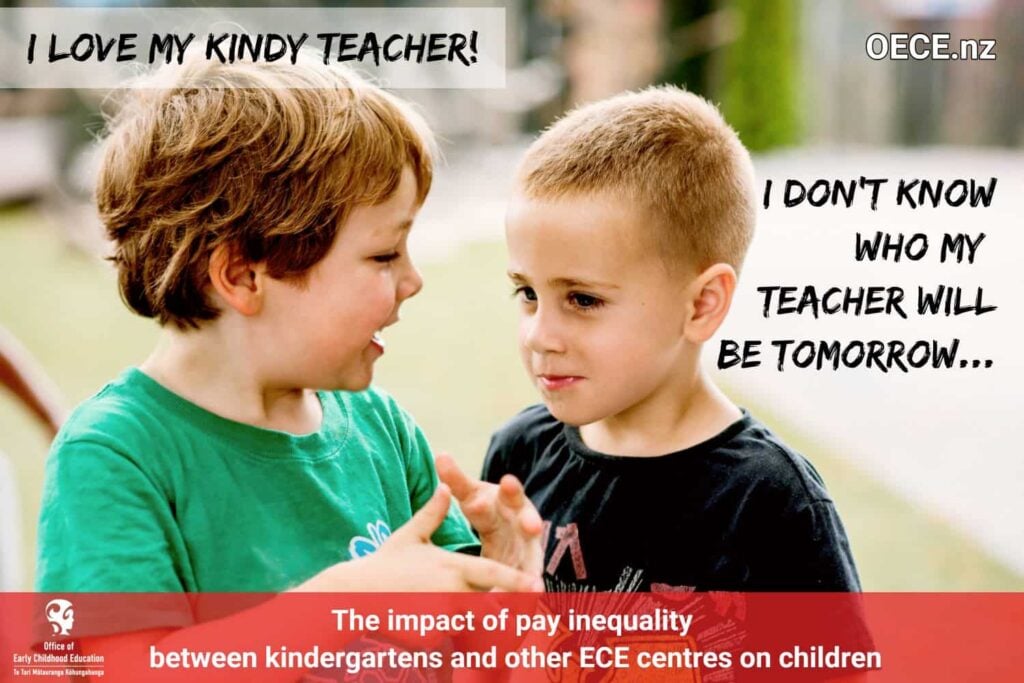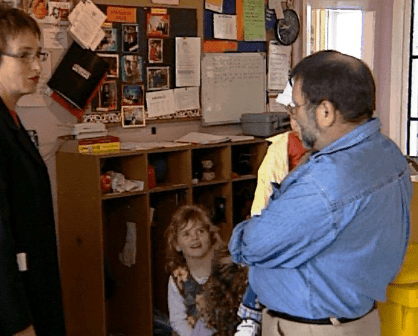Confidence in the Complaints Process.
By Sarah Alexander.
September, 2014.
This report discusses the results of a survey looking at the levels of confidence in the Ministry of Education’s complaints process for early childhood education services.
The survey asked respondents what they considered serious incidents, and how they felt the Ministry dealt with complaints and what impact that has on the early childhood sector.
Background
The Ministry of Education is responsible for licensing and funding early childhood education (ECE) services. It must ensure that ECE services operate legally in compliance with regulations and it has a public responsibility to ensure standards are maintained so services provide an acceptable safe level of care and education for children.
The Education Review Office is perceived in the public eye to be the overseer of the quality of education, but unlike the Ministry of Education, it has no powers of enforcement and is not able to investigate or take action on a complaint.
A request made to ERO in 2014 under the Official Information Act for details of complaints against ECE services received by ERO in 2013, revealed that while ERO receives complaints it places these on file and takes no action. Further, ERO did not receive any referrals from the Ministry of Education and the Ministry did not ask ERO to undertake any special reviews of early childhood services in response to any concerns in the 2013 calendar year.
The Ministry and ERO recommend that parents read the latest ERO review report for an ECE service to find out more about the service’s ability to provide well for children’s learning and care. However, ERO does not include information about issues that the Ministry has investigated, and review reports do not mention complaints that ERO may have received about the service.
The Ministry of Education also keeps private all complaints it receives against early childhood education services. Limited information was released to ChildForum in 2013.
The 2013 release took the form of a spreadsheet with the date of complaint, one sentence describing the issue, and a brief outline of what actions were taken (e.g. resolved by phone, visit required, allegations not substantiated, service provider resolved complaints). A separate document was provided listing only the names and type of service in alphabetical order so it could not be matched to the spreadsheet listing the complaints.
In February 2014, I made another OIA request for information on complaints laid in 2013. However, the Ministry declined the request because it said it intended to make the information publicly available.
The publication of the ECE Complaints Summary 2013 by the Ministry of Education on its website in June 2014 acknowledged public interest in knowing of complaints laid against services. However, the information released was in a highly summarised, statistical form providing anonymity for services and did not reveal the actual complaints. It would not be possible for a member of the public to tell from reading the Summary whether a complaint made was counted. Nor was information on how the Ministry investigated individual incidents included.
These limitations mean that any issues the ECE service has had, or may still have, are kept hidden. Families intending to enrol their baby or young child, other parents and staff at the service, and other stakeholders such as teacher educators who are placing students with centres will not know that a serious incident has occurred unless (as sometimes happens) it is reported to the media or it is picked up by the new My ECE parent information website.
Further, there is no way of knowing if the Ministry’s complaints process for early childhood education is working well – whether it is robust, unbiased, and consistently applied across regions and investigators.
The public have learnt from complaints against early childhood services reported by parents and others to the media over recent years that in cases of child neglect (e.g. children left alone on the premises) and when the child’s life has been put in danger (e.g. unsupervised children leaving the service and wandering the streets) that withdrawing the licence of a service is not something that the Ministry usually does and there is no fine or other penalty.
The Survey
Following the release of the Ministry’s ECE Complaints Summary, we carried out a small online survey for insight into what people think about the Ministry’s complaint system for ECE, to try to define what constitutes a serious incident, and to gauge opinion on whether a service that has had a serious complaint upheld against it should be named.
One quarter of the 150 respondents (25%) were owners or part-owners of one or more early childhood services and 63% were employees who included managers of early childhood trusts and commercial operations, along with home-based co-ordinators, and professional leaders and teachers. The remaining 12% represented a variety of other roles associated with the sector including teacher educators, parent-led service volunteers, and professional development providers.
The survey asked eight questions. One question asked what respondents felt defined a serious incident, while the others covered confidence in the way the Ministry handles complaints, the fact that information is suppressed, and improving outcomes.
What defines a ‘serious’ incident or issue
The Ministry’s response to a complaint is determined by the nature of the complaint. To gauge people’s feeling about the seriousness of incidents that may occur at an ECE service, the survey asked respondents to indicate hypothetically whether they would consider taking their child out of a service if any of the listed events were to happen and they were not confident the issue had been properly addressed. (A full list is shown in Table 1 below).
The issues considered most serious centred around child abuse and neglect such as a child wandering off and not being noticed, a child being verbally abused by an adult, children being left alone in a vehicle while the educator is doing personal errands, and parents not being informed when a child required medical treatment. More than 80% of respondents said if these issues occurred then they would remove their child if they thought it might happen again.
Issues regarding children’s needs, for example teachers showing a lack of concern for a distressed child, and fee and exclusion practices, for example a family being pushed out to make way for a child attending longer hours or teachers not complying with a family’s wish to speak to a child in Te Reo, were considered reasonably serious.
Less serious, were issues concerning staffing and behaviour management. For example, 54% of respondents indicated that allocating teachers who are qualified only to the older children and not with the infants at a service was a serious issue, and 34% of respondents indicated that ongoing biting by a child of other children was serious.
The survey revealed some interesting differences in the feelings of ECE providers (owners and employers) compared to staff (managers, teachers, and co-ordinators). A greater percentage of staff than ECE providers indicated they would not continue using a service (hypothetically for their child) if:
- Children were being verbally abused by an adult (Staff: 95.7%. ECE Providers: 85.3%)
- Teachers showed a lack of concern for distressed children (Staff: 76.1%. ECE Providers: 67.6%)
- A child was dragged by her arm by a teacher (Staff: 74.2%, ECE Providers: 54.5%)
- Infants were cared for by unqualified teachers as the service provider allocates the qualified teachers to work in rooms for older children (Staff: 57.0%, ECE Providers: 44.1%)
Conversely, not supervising children’s use of scissors to prevent a child’s hair from being cut for the third time following a parent’s complaint after the first occasion was not as likely to be regarded as a reason for not using an ECE service by staff (43.0%) as it was by ECE providers (52.9%).
Table 1: The percentage of respondents who said ‘No” for each statement under the question “Hypothetically, if you had a child under-5 enrolled in an ECE service would you continue using the service if, within the last 12 months, any of the incidents below occurred and no information was available to confirm changes had been made to reduce the risk of further incidents?”. The answer choices were: ‘Yes’, ‘No’, and ‘Not Sure’
| Issue or incident | No |
| A child being locked in a room for punishment | 96.5% |
| Children not noticed to be missing for more than an hour after they have wandered off | 95.1% |
| Teachers smacking children | 94.4% |
| Children being left alone in a car while their teacher/educator is doing personal errands | 93.8% |
| Staff and managers leaving an infant behind and locked in the centre building | 93.7% |
| Children being verbally abused by an adult | 93.1% |
| A toddler being left to go to sleep on a swing and suffering rope burns | 90.3% |
| Children wandering onto the road and leaving the ECE service | 90.3% |
| Medical attention not being obtained for a child seriously hurt | 90.2% |
| Unsafe teacher-child ratios – an insufficient number of adults providing active supervision of children | 90.2% |
| Parents not being informed when a child required medical treatment | 87.4% |
| Teachers showing a lack of concern for distressed children | 73.4% |
| Several dogs being allowed by the service provider to be in the same area that children play | 72.7% |
| Bullying of parents whose children are on 20 Hours ECE funding to pay ‘optional’ charges | 72.2% |
| A child being dragged by her arm by a teacher | 69.2% |
| A service provider not allowing teachers to talk in Maori to a child whose parents asked for this | 68.1% |
| Terminating the enrolment of a child whose family disputed being asked to pay a contribution for membership to an external lobby group association | 67.4% |
| Terminating the enrolment of a happily settled child for financial reasons to make way for a child whose parents wanted longer hours | 60.0% |
| Infants being cared for by unqualified teachers as the service provider allocates all of the qualified teachers to work in rooms for older children | 54.2% |
| A child not being given prescribed medicine at the times required and on some days not being given the necessary medicine at all | 46.5% |
| A child’s hair being cut for the third time by other children after the teachers had promised the parent on the first occasion that they would make sure it would not happen again | 46.5% |
| Ongoing biting by a child of other children | 34.3% |
Confidence in the complaints process and ability to handle complaints
In this section, respondents were asked if they were confident the Ministry handled complaints in a satisfactory way. One third of respondents (36%) were not confident that the Ministry would adequately investigate and deal with the issue if they were to make a complaint.
Some said they had previously made a complaint and had not found the process satisfactory. Comments included:
- I have done so several times before and nothing happened. The service is still breaking regulations.
- I have tried to put in a complaint to the Ministry, they promised they would get back to me and didn’t.
- We have raised issues with the Ministry in the past, they are either not dealt with or if they are, there is no follow up (because we see the issues we have raised are continuing). We have found the Ministry very ‘soft’ in their approach.
- We have done so recently and apart from a phone call to the centre, the issues were brushed under the carpet.
Others did not believe the process to be safe or supportive of the rights of a person to complain and be listened to. Comments included:
- Complaints are often referred back to the service, and relationships with the complainant and the person the complaint is about play a huge part in the outcome. Also often staff will cover for the person whom the complaint is about.
- I have found the ministry will only investigate a complaint if it comes in a signed letter. This is sometimes very difficult to do without fear of backlash.
Some felt that the Ministry of Education did not have the necessary resources. Comments included:
- I believe they mean well, but are over-worked and under-staffed.
Others felt that individual providers were treated differently by the Ministry. Comments included:
- I have heard of multiple examples of children being at risk particularly by inattentive, verbally abusive staff and these centres continue to operate after complaints have been made. Often these are not investigated. Then there are centres that have been investigated for the smallest of complaints.
- I’m just not sure I have confidence in the Ministry. The big ECE provider chains have big legal personnel.
The majority of respondents did express confidence in the Ministry, but their comments revealed that most had not had contact with the Ministry over a complaint. Their comments showed an expectation of trust and professionalism, and some said that they would follow-up with the Ministry to make sure it acted on their complaint if they were to lay one. Comments included:
- If I was to complain directly to the Ministry of Education I would assume that I had addressed the situation with the centre directly and that there was no improvement internally hence it needed to go to a higher authority in which case I would expect the Ministry of Education to address the situation.
- Yes, although as a teacher I would more than likely be calling about my own centre, so having a means in which to do so, that was safe, would be fantastic.
- I have never had to do this, but am trusting that they would.
- I would keep complaining until I felt that the issue was addressed.
Some who had experienced the process were supportive. An ECE service owner / employer said, “We have had a complaint made against us, which wasn’t upheld, and we were happy with the way it was dealt with by the Ministry of Education”. An ECE service manager or employee agreed saying, “I have been through the process before, successfully, and the Ministry staff are professionals”.
A person working in the tertiary sector or professional/adult development area expressed confidence in the Ministry but noted that the Ministry had to contend with the interests of the ECE service provider and parents relying on the service for childcare. The person said, “I am inclined to believe they do try under the powers they have to remedy situations, but it is also apparent that there are critical factors which can impact upon certain situations. The centre needs to be given the opportunity to improve instead of removing the licence otherwise it puts parents then in a difficult situation of finding alternative care”.
Name and information suppression
This section of the survey questioned whether ECE services should be named following complaints and how much information should be released.
As many as 62% of respondents wanted to see an ECE service named when a serious complaint made against it is upheld by the Ministry of Education, while 73% wanted to see details of the incident or issue made available, without names being included.
The reasons given for naming offending services included:
- We need to be accountable for our actions.
- To prevent other services from doing the same or knowing they can get away with it.
- Publication stops other centres from being implicated and puts paid to rumours.
- It should be the same as with teachers who are named by the Teachers’ Council. Centre names should be published if the complaint is serious and proven.
- Parents have the right to know.
- To enable parents to make their own judgement on the capacity of the service to care for their child. How else is a family to make an informed decision if information is withheld?
- The community should know for the future protection of children, teachers and the sector.
- The name of the service should be disclosed if the investigation was equitable and a balanced approach taken.
The reasons given by the 38% of respondents who wanted the names of services to be kept confidential included:
- It would make the service suffer to make its name known, and be unfair if changes are made and the problem is fixed.
- If it is a once off, and there is not more than one complaint.
- Because the complaint may be about an individual person or two and once that’s dealt with the service is able to review practice and make improvements without the added extra of having the community making judgements about it.
- If it were down to one or two people, branding the centre may unnecessarily tarnish any further work opportunities for uninvolved/absent staff.
Releasing information on what happened at ECE services (without identifying individual children and families) after complaints of a serious nature are upheld is viewed as important by 73% of respondents because:
- Then parents can judge for themselves whether they are satisfied with how the complaint has been dealt with. If we are to address child abuse adequately in NZ we need to be transparent about our services. ‘Trust through transparency should be our motto.’
- ECE services need evidence that the Ministry of Education follows through an investigation. This then should be a warning to all ECE services.
- This would make people aware of what steps had been taken to address the complaint and what sort of outcome there is for serious complaints. As it is now, no one knows what happens.
- Then other centres are aware of what can go wrong and possibly review their own procedures and policies.
- People have a right to know where their tax dollar is going. Let’s not forget that the reason for the sector is for the children. If things are swept aside, then ignorance becomes the blanket behind which people can hide.
A suggestion was made that the service involved should be encouraged to disclose the serious incident themselves and at the same time discuss the strategies that were being employed following any self-review, after the incident. It was also suggested that services be required to provide details of the incident(s) to people inquiring about the service and to current families at the service.
The reasons held by respondents (27%) for not wanting to see details made public included:
- It would encourage parents and whanau to start looking for problems with their own child’s care and education.
- Small communities often know who is being talked about even without names.
- There is no room for sensationalising.
- It would lead to panic among parents toward the ECE sector.
- I would want to have complete trust that investigations are robust and thorough. Maybe we need an independent body to be part of the process to ensure it is independent? Once we have that trust then a report would be fine.
The issue of transparency versus privacy and achieving better outcomes for services and the ECE sector
Two somewhat ambiguous questions were (purposefully) included in the survey to try to ascertain whether it would be helpful or harmful to individual services and to the ECE sector as a whole to keep investigations into complaints confidential and why.
The first question asked whether the Ministry of Education was helping to maintain the good reputation of the ECE sector as a whole by keeping confidential the services investigated following complaints of a serious nature and the outcomes of the investigation.
Forty-two percent of respondents thought it was and 58% did not believe it was helping.
Comments showed that many respondents who believed the Ministry was helping the sector thought that the sector as a whole would be made to look bad by a few below par services.
Among those who disagreed and thought that the good reputation of the sector was not being supported by keeping confidential the services investigated some strong views were expressed. Comments included:
- Currently when it is made public (through the media) the Ministry looks like it is covering for the service.
- I don’t see it as keeping confidentiality but as hiding information that could be damaging to a centre. This puts the whole sector under suspicion, encourages rumours and makes all early childhood services look bad.
- No because an open and honest approach ensures high standards of professionalism.
- Keeping information confidential encourages secretiveness and mistrust.
- Because parents deserve to have a full picture when staff are too scared of losing their jobs or being bullied by management to complain.
- The local community knows of the problem services. The Ministry seeming to do nothing about these makes the community wary of reporting other ECE problems.
- We do not need to deceive people, most early childhood centres are really great and providing excellent service. I don’t think there are so many complaints that it would put people off ECE completely, they still work and need childcare.
The second question asked whether the Ministry of Education was helping to maintain the good reputation of an individual service if it does not make a written report of its investigation into a complaint available for parents and others to read and for the service to choose to respond to publicly.
Forty percent of respondents felt that not making a report public did support the good reputation of the service, for reasons such as the Ministry investigation being enough in itself. However, some felt that it was not necessarily a good way of maintaining a reputation. Comments included:
- An unworthy centre may have a ‘good reputation’ because of a lack of transparency.
- It is helping to maintain the reputation but seems unfair that public doesn’t get the information.
- I agree, however if you live in a small community a written report would actually benefit – the service could respond and this could eliminate further gossip.
The reasons why the majority of respondents (60%) did not believe the Ministry was helping to maintain the good reputation of the service by not providing a written report included:
- A written report exhibits true attempts at resolution and conveys one direct summary of the event, preventing conjecture and assumptions.
- I’m all for a written report of the investigation. This may also support the service to keep its reputation if they are acting with good faith in improving practice.
- Some complaints can be the result of a teacher gone rogue; others may have more basis. However, even with a single rogue teacher, I have no way of knowing who else she may have talked to regarding the centre and me [as manager]. If a complaint is investigated, whether it is found warranted or not, I would prefer to have a written report, so that if a parent has heard something and they come to me, then I can give them an independent opinion of the rights or wrongs of the situation.
- Had other staff known of the complaint they may have volunteered their own stories to the Ministry. As they didn’t it was the complainant’s word against the members of the management board (and the board members never see the centre in action so they really aren’t the best people to approach).
Inspections
The final section of the survey dealt with inspections and asked two questions. These questions related to the Ministry exercising its power to inspect a service, or not, without a warrant under Section 319B of the Education Act. The Act does not specifically state that inspection can be undertaken without prior notification or warning, though it does state that it must be conducted at a reasonable time which would suggest some warning may be required. Information provided previously by the Ministry in response to an OIA request revealed that, in many cases, services were notified of a complaint by phone first or allegations were not upheld after talking with the service provider.
Sixty-nine percent of respondents wanted to see the Ministry visit unannounced, rather than phone first if a complaint had been made. Reasons for preferring unannounced visits included:
- The unannounced visit could be the first contact to the service regarding a complaint.
- Then the Ministry can see the context and how it is at the centre without cover-up.
- If they phone first, centres will then discuss the complaint and give the staff an opportunity to come up with a story or excuse, also other staff to back them.
- We have an open door policy.
- Anyone should be able to visit any time.
Further, a respondent said, “As an owner it’s nice to be able to find out from staff prior to being visited but it depends on seriousness”. Another respondent added a condition saying, “The phone call should still happen but on the day the check is going to occur”.
The respondents (31%) who did not want the Ministry to visit a service before informing the service of a complaint were mostly concerned about issues of the Ministry entering the service’s territory, privacy, and preparedness:
- Not for privately owned centres. It is like going into someone’s home.
- Complaints are usually about a specific historic thing so it’s better if the centre can get its information together before any visit.
- I would like to say yes turn up unannounced but some parents can be neurotic and make minor issues sound worse. A call from the Ministry may be enough to make the centre pull themselves up and realise they need to handle something differently in future.
- Ambushing a service by visiting without phoning is unfair.
More respondents wanted to see the Ministry or ERO carry out unscheduled monitoring (85%) on services between scheduled ERO visits, than as part of investigating complaints (69%).
Those who did not support unscheduled visits/monitoring (15%) either regarded this as being repressive or were concerned about time pressures if services needed to have paper work and other administration up-to-date. One respondent was concerned about whether an even approach would be taken to monitoring community services over the larger corporates.
Those who supported unscheduled visits or monitoring did so for reasons such as:
- This would help maintain robust and high quality ECE.
- This used to happen many years ago, we often had ‘spot’ checks. Why has it stopped? This is the most sensible thing to do, as the Ministry will see it ‘as it is’ e.g. no registered staff, over ratio etc.
- To keep every service on its toes – The standard, systems and therefore service should be consistent despite being informed or not about a visit.
- I have been asking for this for years. It would help to maintain quality all year.
- It would prevent the ‘slip then pull your socks up’ approach I’ve seen many centres take.
- Strongly recommend as I believe regular checks help and support services due to the fact that services go through staff turnover, new families and children, etc
- Every service I have been in prepare for ERO’s visit, they catch-up on paper work and staff behave totally out of character. Not a true picture of the normal service.
- I have worked previously in a centre that prepared for ERO’s visit by buying new resources, telling us what needed to go out, even going as far as telling some parents of naughty children to stay away.
- I have known centres who quickly created planning and back dated it all to show ERO.
- It is fairly easy for centres to put on a good front for ERO when they have a long notice period for visits. I have seen this happen and staff will often not speak up for fear of reprisal.
- Definitely because ERO does not seem to be interested in compliance with Safety and Health Regulations. Despite the centre’s fall playground surface having been concrete for many years it’s never been mentioned in any ERO report.
- It may change the Ministry emphasis from paper work to procedures and care of children.
- Staff may resent it but we have a huge responsibility for other people’s children. And if we as staff are practising quality we will have nothing to fear.
- We do it monthly to Educators working from their homes and it helps keep everyone safe.
Conclusion
The results of the survey show that many do not have confidence in the way complaints are currently handled by the Ministry and would like to see improvements. Interestingly, many of those with positive views had not had contact with the Ministry over complaints, while those that had were more likely to be critical.
This suggests that while the perception of the complaints process is good, in practice it does not work as well as it should.
The survey results show that while respondents want to have confidence in the complaints process not all of them do, with comments suggesting that the Ministry does not always investigate thoroughly enough, for example by simply contacting the service by phone and accepting the explanation, or by not following up sufficiently to make sure issues have fully been resolved. There also seems to be concern that it sometimes comes down too much on the side of ECE providers rather than complainants and that there is inequality in the treatment of different providers.
The survey also reveals tensions between the desire to be transparent and have the details of complaints, the investigation and outcome, and possibly even the name of the service released, with the need to protect the reputation of services and the sector as a whole.
Opinion seems divided as to whether revealing details of complaints will harm or help the sector and individual services, and the Ministry must strike a balance between making the complaints system robust and giving parents, and the public access to relevant information and not unduly damaging the reputation of any particular service.
This is a particularly difficult task in light of the government’s push to increase child participation in ECE as while the Ministry must uphold regulations and standards, it is also part of that participation drive and must not be seen to be putting families off using ECE for their children.
However, while results were divided, the majority seemed in favour of more details being released, especially when the nature of the complaint was serious. One way forward would be for the Ministry to agree to release service names and details for serious complaints, or for repeated serious incidents, but complaints that proved unfounded, vexatious or were of a less serious nature would be kept confidential. This would enable parents to make informed choices about services in regards to the issues considered most detrimental to children, without unnecessarily harming a service’s business and reputation over a small issue. It would also enable all services to be informed and learn what they could do to ensure similar incidents do not occur.
The move to put some complaints information on its website is a step in the right direction for the Ministry of Education, but this survey suggests that there is still some way to go. Perhaps the time is right for the Ministry to take the next step and review its practices of responding to and reporting complaints.
A review could look into how best to go about raising people’s confidence in how the complaints process works and how the process could be improved to better ensure the quality of our mainly publicly funded community and privately-based early childhood education system.
In addition, many would like to see the Ministry or ERO carry out unscheduled monitoring to ensure the quality of early childhood education is maintained by services between ERO’s pre-announced up to four-yearly review visits.









